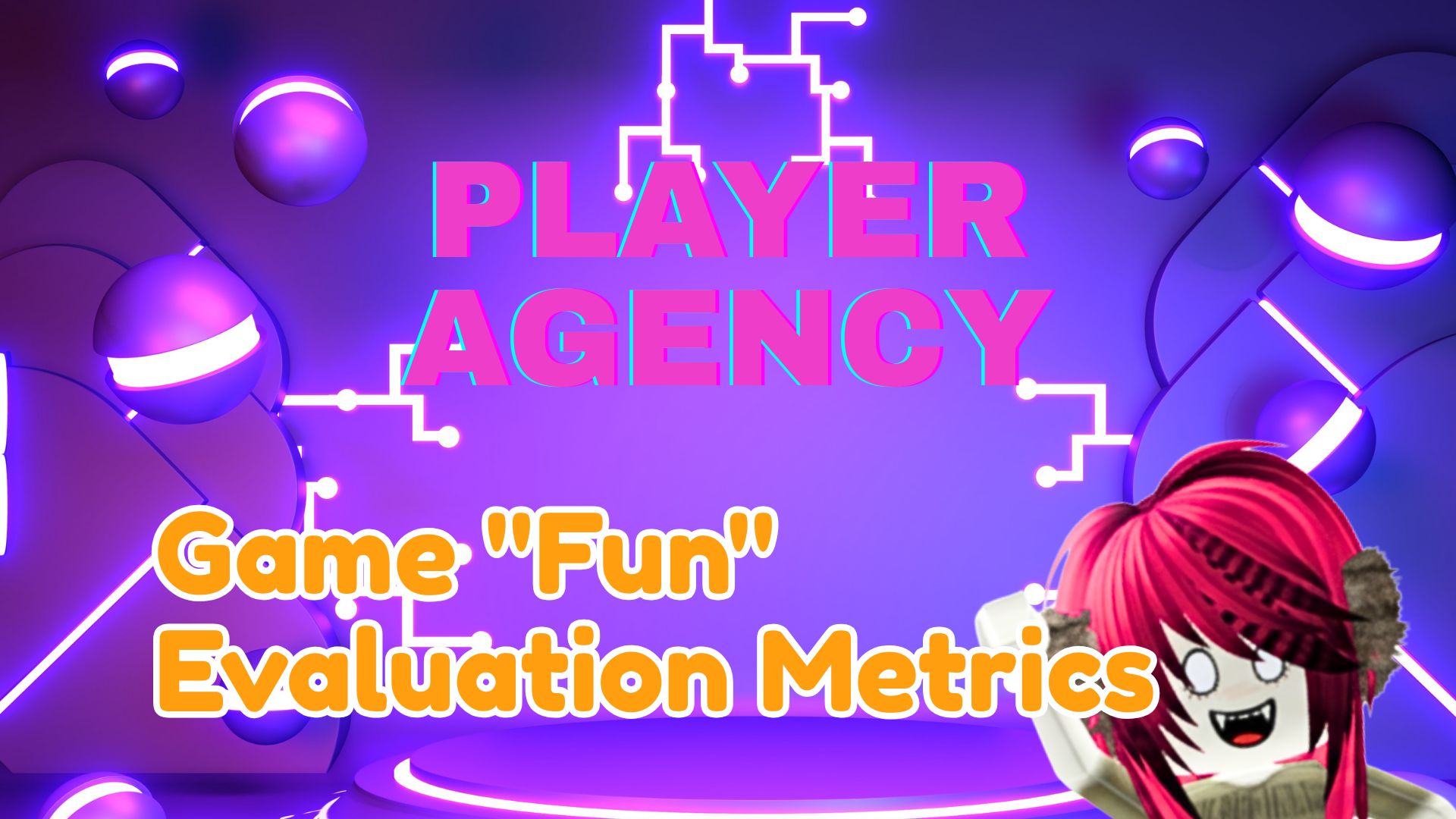
Key Points
- 🎯 Self-determination theory: "Wanting to choose" is a fundamental need
- 🎮 Satisfaction maximized when controllable area is 30-70%
- 💭 "Meaningful choices" require 4 conditions
- 🧠 Brain reward system during choices creates pleasure
In our previous article about "Rhythm and Pacing," we explained game design born from music theory. This third article in our Game "Fun" Evaluation Metrics series explores "Player Agency." "Take the right path or the left?" - Why does this simple choice captivate us so much? Let's scientifically uncover the ultimate immersion created by freedom of choice.
Introduction: Right or Left, The Magic of Simple Choices
That moment of decision when standing at a crossroads during gameplay. The feeling of "I'm deciding for myself" in this instant is the core of what makes games fun. In psychology, this "sense of choosing and controlling for oneself" is called agency (autonomy), positioned as one of humanity's basic needs.
📊 Evaluating Player Agency
What We Evaluate
Whether players feel they are "conquering through their own choices"
🔍 Specific Measurement Items
- Value Difference in Multiple Routes
- Choice between safe but slow route vs risky but fast route
- Risk-Reward Balance
- Rewards matching dangerous detours (coins, shortcuts, etc.)
- Impact of Decision Making
- Whether player choices clearly affect outcomes
💡 Why This Creates Fun
The feeling of "choosing for yourself" rather than "being forced" increases immersion and satisfaction in games.
🎮 Psychology's "Self-Determination Theory" Origins (1985~)
Deci & Ryan's Self-Determination Theory
According to self-determination theory, humans have a fundamental need to "choose for themselves." This is a basic need at the same level as hunger or sleep. Games satisfy this need in a purer form than reality.
Three Basic Human Needs
- Autonomy: Want to choose
- Competence: Want to become capable
- Relatedness: Want to connect
"Autonomy" in games = Player Agency
Extrinsic vs Intrinsic Motivation
- Extrinsic: Doing for rewards (boring)
- Intrinsic: Doing is fun itself (absorption)
- Key: The feeling of "choosing for yourself"
Liapis et al.'s (2013) Groundbreaking Universal Theory
"Towards a Generic Method of Evaluating Game Levels"
Discovery of "Area Control" Pattern
Research Method:
- Analyzed maps from different genres (FPS, RTS, Puzzle)
- Quantified areas players can "control"
Control Map Examples:
□□□□□□ → Linear path (Control: Low)
□■□■□□ → With obstacles
□╱╲□□□ → Branching (Control: High)
□╱─╲□□ → Multiple choicesCanossa & Smith's (2015) Quantification Research
"Towards a Procedural Evaluation Technique: Metrics for Level Design"
Quantifying Three Elements of Agency
-
Choice Count
- Number of branch points
- Route variations
-
Impact Score
- Difference in outcomes from choices
- Irreversibility
-
Clarity Index
- Predictability of results
- Clarity of feedback
"Meaningful Choice" Theory (2004~)
Sid Meier's (Civilization Developer) Quote
"A game is a series of interesting choices"
Four Conditions for "Meaningful"
- Distinguishable: Clear differences between options
- Impactful: Choices change outcomes
- Irreversible: Choices have weight
- Informed: Judgment materials available
Implementation Analysis in Modern Games
Hades (2020) - Perfect Agency Design
- Build choices: Thousands of combinations
- Route choices: Clear risk/reward
- Story choices: Player actions affect relationships
The Stanley Parable (2013) - Meta Agency
- Gamifies the act of choosing itself
- "Not choosing" is also designed as a choice
Support from Neuroscience (2018~)
Brain Mechanisms Revealed by fMRI Research
- Prefrontal cortex activates during choices
- Reward system response doubles for "self-chosen" success
- Dopamine release increases with freedom of choice
Frequently Asked Questions (FAQ)
What is player agency?
Player agency is the feeling that players are "conquering through their own choices." Based on "autonomy" from self-determination theory, the feeling of "choosing for yourself" rather than "being forced" increases immersion and satisfaction in games.
Why does freedom of choice lead to fun?
According to self-determination theory, humans have a fundamental need to "choose for themselves." This is a basic need at the same level as hunger or sleep, and games satisfy this need in a purer form than reality, creating deep satisfaction and fun.
What are the conditions for meaningful choices?
According to Sid Meier, meaningful choices have four conditions: 1) Distinguishable (clear differences between options), 2) Impactful (choices change outcomes), 3) Irreversible (choices have weight), 4) Informed (judgment materials available). Meeting these makes player choices truly meaningful.
Summary
In this article, we comprehensively explained "Player Agency," an important element that constitutes game "fun," from self-determination theory to the latest neuroscience research. The reason why the simple act of "choosing for yourself" creates such deep satisfaction is becoming scientifically clear.
Key Takeaways:
- Autonomy is a fundamental human need, and games purely satisfy this
- 30-70% controllable area creates optimal satisfaction
- Meaningful choices need 4 conditions (distinguishable, impactful, irreversible, informed)
- Freedom of choice activates the brain's reward system and promotes dopamine release
- Modern successful games implement clever agency design
Good game design provides players with the feeling of "I chose this, I achieved this" without making them feel "forced." In the next article, the fourth in our Game "Fun" Evaluation Metrics series, we'll explore game design secrets from yet another perspective.
References
- 📚 Deci, E. L., & Ryan, R. M. (1985). "Intrinsic Motivation and Self-Determination in Human Behavior" - Plenum Press
- 📚 Liapis, A., Yannakakis, G. N., & Togelius, J. (2013). "Towards a Generic Method of Evaluating Game Levels" - Proceedings of the AAAI Conference on Artificial Intelligence and Interactive Digital Entertainment
- 📚 Canossa, A., & Smith, G. (2015). "Towards a Procedural Evaluation Technique: Metrics for Level Design" - Proceedings of the 10th International Conference on the Foundations of Digital Games
- 📚 Sweetser, P., & Johnson, D. (2019). "GameFlow and Player Experience Measures" - ACM Computing Surveys